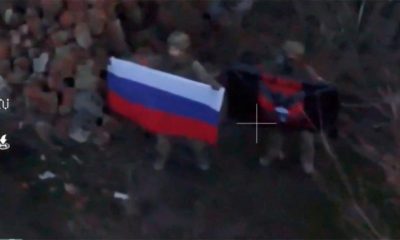International
Ukrainian president says defense is at a ‘turning point’

The Ukrainian president said his country’s defense against the Russian invasion is at a “turning point” and again pressed the United States for more help in the hours after the Kremlin’s forces reneged on a pledge to scale back some of their operations.
Russian forces bombarded areas around Kyiv and the northern city of Chernihiv and intensified attacks in other parts of the country Wednesday, adding to already deep doubts about any progress toward ending the punishing war. Talks between Ukraine and Russia were set to resume Friday by video, according to the head of the Ukrainian delegation, David Arakhamia.
Meanwhile, a delegation of lawmakers from Ukraine’s parliament visited Washington to push the U.S. for increased assistance, saying their nation needs more military equipment, more financial help and tougher sanctions against Russia.
“We need to kick Russian soldiers off our land, and for that we need all, all possible weapons,” Ukrainian parliament member Anastasia Radina said at a news conference at the Ukrainian Embassy.
Ukrainian President Volodymyr Zelenskyy made the case directly to U.S. President Joe Biden.
“If we really are fighting for freedom and in defense of democracy together, then we have a right to demand help in this difficult turning point. Tanks, aircraft, artillery systems. Freedom should be armed no worse than tyranny,” Zelenskyy said in his nightly video address to the nation, which he delivered standing in the dark outside the dimly lit presidential offices in Kyiv. He thanked the U.S. for an additional $500 million in aid that was announced Wednesday.
There seemed to be little faith that a resolution would emerge anytime soon between Russia and Ukraine, particularly after the Russian military’s about-face and its most recent attacks.
READ ALSO:
- Train attack: Terrorists contact hostages’ families
- NDLEA busts five-member airport drug syndicate, seizes N19.8m cash
- IPOB protests move to name Second Niger Bridge after Buhari
Russia said Tuesday that it would de-escalate operations near Kyiv and Chernihiv in order to “increase mutual trust and create conditions for further negotiations.” The announcement was met with suspicion from Zelenskyy and the West. And soon after, Ukrainian officials reported that Russian shelling hit homes, stores, libraries and other civilian sites in or near those areas.
Russian troops also stepped up their attacks on the Donbas region in the east and around the city of Izyum, which lies on a key route to the Donbas, after redeploying units from other areas, the Ukrainian side said.
Olexander Lomako, secretary of the Chernihiv city council, said the Russian announcement turned out to be “a complete lie.”
“At night they didn’t decrease, but vice versa increased the intensity of military action,” Lomako said.
Five weeks into the invasion that has left thousands dead on both sides, the number of Ukrainians fleeing the country topped a staggering 4 million, half of them children, according to the United Nations.
“I do not know if we can still believe the Russians,” Nikolay Nazarov, a refugee from Ukraine, said as he pushed his father’s wheelchair at a border crossing into Poland. “I think more escalation will occur in eastern Ukraine. That is why we cannot go back to Kharkiv.”
Zelenskyy said the continuing negotiations with Russia were only “words without specifics.”
“We know that this is not a withdrawal but the consequences of being driven out,” Zelenskyy said of Russia’s pledge. “But we also are seeing that Russia is now concentrating its forces for new strikes on Donbas, and we are preparing for this.”
Zelenskyy also said he had recalled Ukraine’s ambassadors to Georgia and Morocco, suggesting they had not done enough to persuade those countries to support Ukraine and punish Russia for the invasion.
“With all due respect, if there won’t be weapons, won’t be sanctions, won’t be restrictions for Russian business, then please look for other work,” he said.
In other developments:
—U.S. intelligence officials have concluded that Russian President Vladimir Putin is being misinformed by his advisers about the poor performance of his military in Ukraine because they are too afraid to tell him the truth.
—The German government said it received assurances from Russia that European companies won’t have to pay for Russian gas in rubles. That prospect had raised fears that Russia could cut them off. Also, Poland announced steps to end all Russian oil imports by the end of the year.
— The U.N. is looking into allegations that some residents of the besieged and shattered southern city of Mariupol have been forcibly taken to areas controlled by Russian forces or to Russia itself.
At a round of talks held Tuesday in Istanbul, the faint outlines of a possible peace agreement seemed to emerge when the Ukrainian delegation offered a framework under which the country would declare itself neutral — dropping its bid to join NATO, as Moscow has long demanded — in return for security guarantees from a group of other nations.
Top Russian officials responded positively, with Foreign Minister Sergey Lavrov saying Wednesday that Ukraine’s willingness to accept neutrality and look outside NATO for security represents “significant progress,” according to Russian news agencies.
But skepticism of statements from Russia by Zelenskyy and others seemed well-founded.
READ ALSO:
- Drug War: FG approves N1bn for eye lie detector, goggle for NDLEA
- Putin demands Mariupol surrender to end shelling
- JUST IN: Benue Residents Gunned Down In Fresh Attack
- Russia Says No Breakthroughs in Ukraine Talks, Much Work Remains
Oleksandr Pavliuk, head of the Kyiv region military administration, said Russian shells targeted residential areas and civilian infrastructure in the Bucha, Brovary and Vyshhorod regions around the capital.
Russian Defense Ministry spokesman Maj. Gen. Igor Konashenkov said the military also targeted fuel depots in two towns in central Ukraine with air-launched long-range cruise missiles. And Russian forces hit a Ukrainian special forces headquarters in the southern Mykolaiv region, he said, and two ammunition depots in the Donetsk region, which is part of the Donbas.
In southern Ukraine, a Russian missile destroyed a fuel depot in Dnipro, the country’s fourth-largest city, regional officials said.
The U.S. said that over the last 24 hours, Russia had begun to reposition less than 20% of its troops that had been arrayed around Kyiv.
Pentagon press secretary John Kirby said that troops from there and some other zones have begun moving largely to the north, and some have gone into Belarus. Kirby said it appears Russia intends to resupply them and send them back into Ukraine, but it is not clear where.
The Ukrainian military said some Russian airborne units were recorded in neighboring Belarus and were believed to have withdrawn from Ukraine.
In northern Ukraine, Russian forces took no offensive actions Wednesday, focusing on reconnaissance and logistics, the general staff said in a statement. But Russia is expected to increase attacks soon on Ukrainian forces to protect its own troops as they are repositioned, it said.
The Russians also are expected to try to blockade Chernihiv.
Top Russian military officials have said in recent days that their main goal now is the “liberation” of Donbas, the predominantly Russian-speaking industrial heartland where Moscow-backed separatists have been battling Ukrainian forces since 2014.
Some analysts have suggested that the focus on the Donbas and the pledge to de-escalate may merely be an effort to put a positive spin on reality: Moscow’s ground forces have been thwarted — and have taken heavy losses — in their bid to seize the capital and other cities.
AP
International
2 Nigerians in US face heavy jail term over fraud
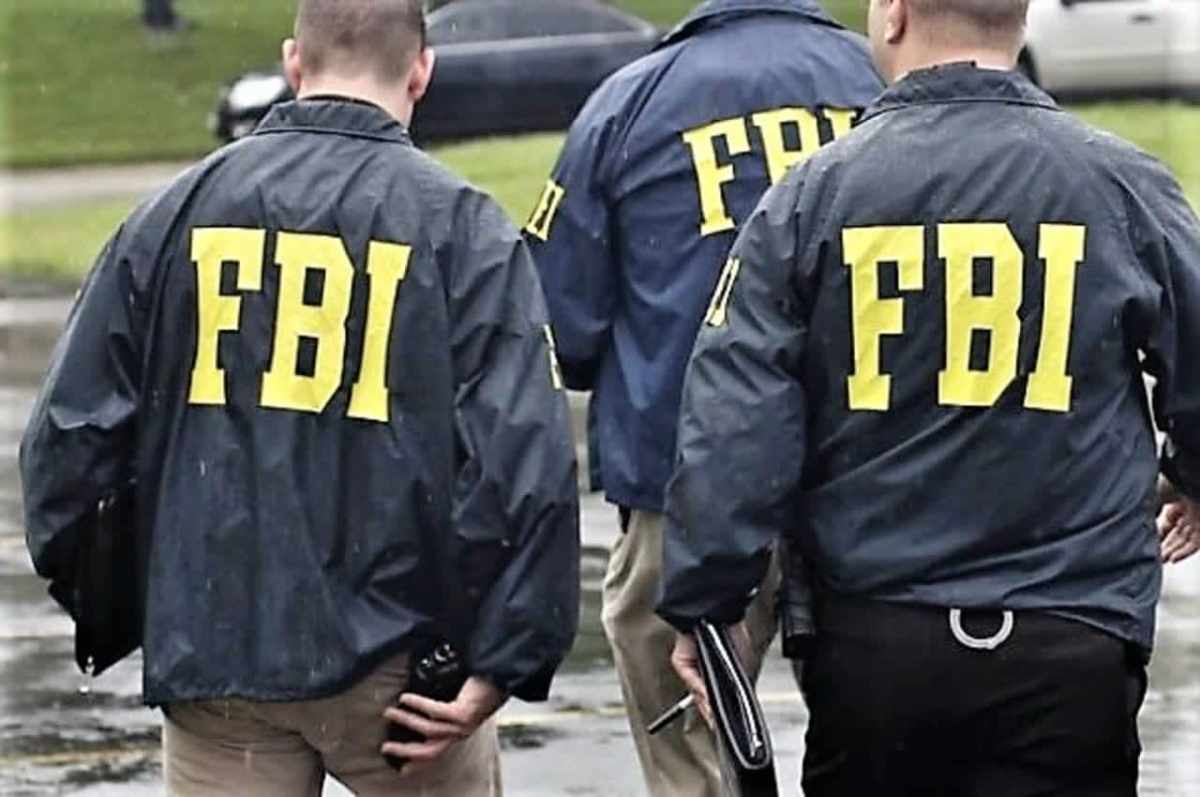
2 Nigerians in US face heavy jail term over fraud
Two Nigerian nationals based in the United States, Solomon Aluko and Nosakhare Nobore, alongside four others, are facing a possible 62-year prison sentence each after being arraigned before a New York court for allegedly defrauding the U.S. government of $50 million.
It was gathered from a court document obtained on the US Department of Justice website on Sunday that the suspects were arraigned on four counts bordering on conspiracy to commit wire fraud and bank fraud, conspiracy to commit money laundering, engaging in a monetary transaction in property derived from specified unlawful activity, conspiracy to defraud the government, and aggravated identity theft.
The court document indicated that the suspects committed the offences between March 2020 and March 2025, in the Southern District of New York and across other places in the US.
The charge sheet noted that “the defendants, and others, worked together to steal money that did not belong to them by passing counterfeit, stolen, and fraudulently obtained cheques. They submitted the cheques to banks and then withdrew or transferred funds before the banks could determine that the cheques were counterfeit, stolen, or fraudulent.”
According to the document, the defendants allegedly stole information and identities of different individuals and businesses and used the information and identities to open bank accounts through one of their members, who was a bank teller at the time.
The bank accounts were allegedly used to deposit fraudulently obtained cheques from different US agencies.
It continued, “Once the cheques were deposited, the defendants withdrew the fraudulently obtained funds in cash or transferred them to other bank accounts under their control.
“Throughout their scheme, the defendants attempted to obtain approximately $80 million in total. They succeeded in depositing approximately $50 million.”
In a statement accompanying the document on the DoJ website, it was revealed that the suspects created a ‘fraud bible’, which contained specific instructions on how each member of the syndicate would operate.
READ ALSO:
- Canada denies 13,000 Nigerians refugee status
- Lagos Govt to redesign Oshodi motor park for rail integration
- Nurse punished in UK for addressing convicted transgender paedophile as ‘Mr’
- Ex-LG chair challenges El-Rufai’s claims on council funds
It further noted that the syndicate also openly communicated its operations via a Telegram group where discussions on their operations were held.
Commenting on the activities of the syndicate, the statement quoted the US FBI Acting Assistant Director, Leslie R. Backschies, as saying, “These six defendants allegedly used sham businesses, stolen, and fake identities to operate a multi-year cheque fraud scheme, resulting in $50 million in illicit funds being deposited into their accounts.
“The defendants brazenly attempted to exploit multiple United States government programmes in their attempts to illegally enrich themselves. The FBI will continue to ensure fraudsters attempting to lie, cheat, and steal from the government answer for their crimes in the criminal justice system.”
Similarly, the US IRS Special Agent in Charge of the case, Harry Chavis, said, “This group of suspects openly communicated about their fraud, taking pride in the multiple schemes that stole nearly $50 million from the American public.
“They lied and cheated a benefits system meant to help struggling businesses that need it, all while stealing cheques from agencies that assist the elderly and veterans. This gang of ‘bag hunters’ will now face justice for multiple charges.”
Following their indictment, the statement noted that the suspects could be sentenced to 62 years imprisonment each for the four counts.
It acknowledged that the defendants were presumed innocent until proven guilty by the court.
“Anand, 34, of Queens, New York; Nobore, 29, of Edgewater, New Jersey; Pappas, 28, of Miami, Florida; Ujkic, 44, of Ft. Lauderdale, Florida; Aluko, 29, of Hackensack, New Jersey; and Gonzalez, 28, of North Bergen, New Jersey, are each charged with conspiracy to commit wire fraud and bank fraud, which carries a maximum sentence of 30 years in prison; conspiracy to commit money laundering and engaging in a monetary transaction in property derived from specific unlawful activity, which carries a maximum sentence of 20 years in prison; conspiracy to defraud the government, which carries a maximum sentence of 10 years in prison; and aggravated identity theft, which carries a mandatory sentence of two years in prison.
“The maximum potential sentences are prescribed by Congress and are provided here for informational purposes only, as any sentencing of the defendants will be determined by a judge.
“The charges contained in the indictment are merely accusations, and the defendants are presumed innocent unless and until proven guilty,” the statement concluded.
2 Nigerians in US face heavy jail term over fraud
(Punch)
International
Canada denies 13,000 Nigerians refugee status

Canada denies 13,000 Nigerians refugee status
Over 13,000 Nigerians who applied for refugee protection in Canada from January 2013 to December 2024 were rejected.
According to data from the Refugee Protection Division (RPD) of the Immigration and Refugee Board of Canada, this figure includes 811 Nigerians whose applications were turned down in 2024.
The board placed Nigeria among the top five countries with the most rejected claims.
Mexico tops the list with 2,954 rejections, followed by India and Haiti, which have 1,688 and 982 rejected claims, respectively.
Colombia is in fourth place with 723 rejected claims, while Nigeria is in fifth place with 13,171 rejections.
In Canada, asylum seekers get refugee protection if the RPD satisfactorily confirms that their claims meet the United Nations definition of a Convention refugee.
In its definition of the Status of Refugee, the 1951 UN Convention states refugees are persons who have a substantiated fear of persecution because of their race, nationality, religion, political ideology or membership in a particular social group, which can include sexual orientation, gender identity, being a woman and persons living with HIV/AIDS.
READ ALSO:
- Lagos Govt to redesign Oshodi motor park for rail integration
- Nurse punished in UK for addressing convicted transgender paedophile as ‘Mr’
- Ex-LG chair challenges El-Rufai’s claims on council funds
However, in Canada, asylum seekers are expected to show evidence that they are in danger of torture, risk to their life or risk of cruel and unusual treatment or punishment if they return to their country of nationality.
According to the Refugee Board’s application guideline, if an applicant’s “claim is eligible, it is sent to the RPD to start the claim for refugee protection process.”
The breakdown of the rejections showed that 127 Nigerian claims were rejected in 2013, 241 in 2014 and 248 in 2015.
Canada denies 13,000 Nigerians refugee status
International
Nurse punished in UK for addressing convicted transgender paedophile as ‘Mr’
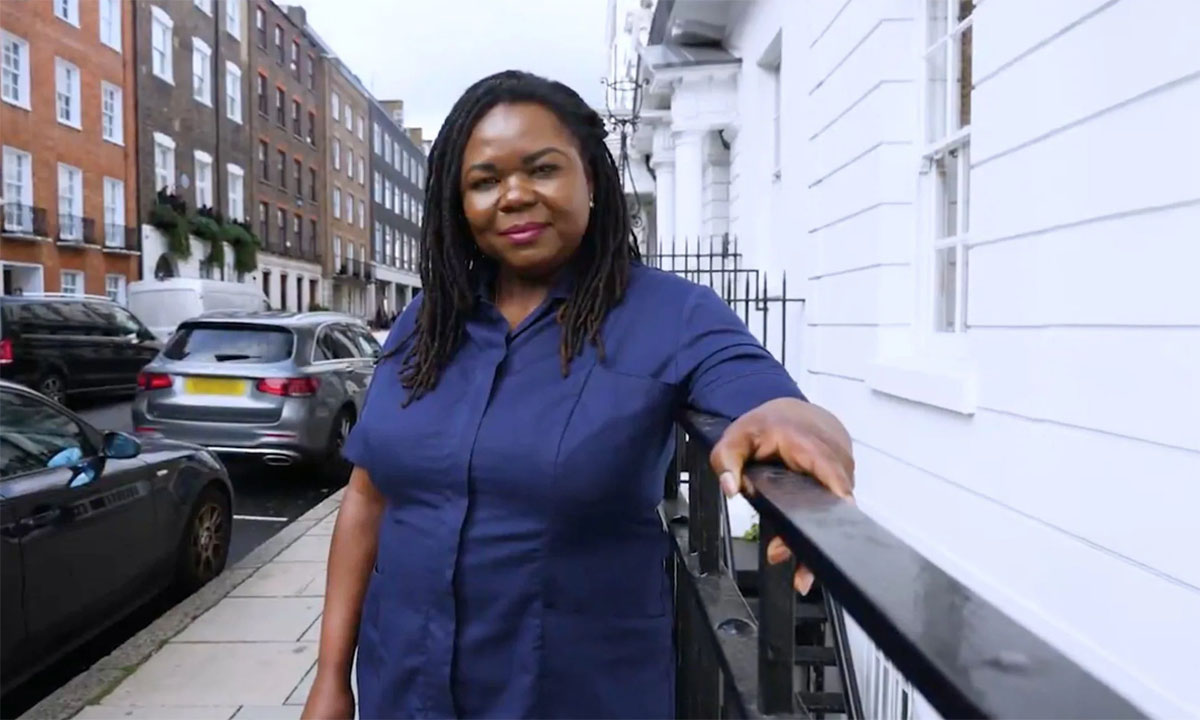
Nurse punished in UK for addressing convicted transgender paedophile as ‘Mr’
A senior nurse in the UK is battling to save her career after facing disciplinary action for refusing to refer to a convicted child sex offender as a woman.
Jennifer Melle, 40, from Croydon, was working at Epsom and St Helier University Hospital Trust when she declined to use female pronouns for a paedophile known as ‘Mr X,’ per report from the London Standard.
The offender, currently serving time in a high-security male prison, was jailed for grooming boys online while posing as a teenage girl.
Following her refusal, Melle claims she was subjected to racial abuse and physical threats.
She was, reportedly, then issued a final written warning and referred to the Nursing and Midwifery Council (NMC) for allegedly breaching professional standards.
READ ALSO:
- Ex-LG chair challenges El-Rufai’s claims on council funds
- Some ladies in movie industry ready to sleep their way to fame — Jide Kosoko
- Gunmen abduct Catholic priest in Anambra
NHS lawyers argued that Melle’s Christian belief—that people are born male or female—was “not worthy of respect in a democratic society.”
An internal investigation found she had violated the NMC Code of Conduct by failing to respect the patient’s “preferred identity” and uphold the Trust’s core value of “Respect.”
As a result, Melle has been moved to another ward, which she says is a demotion, and has had her name removed from internal hospital systems, preventing her from applying for additional shifts.
Now, with the backing of the Christian Legal Centre, she has launched legal action against the Trust, alleging harassment, discrimination, and breaches of her human rights.
The case comes amid growing controversy over gender policies in public institutions.
A recent report, the Sullivan Review, revealed that UK police forces have been allowing criminals to self-identify their gender on official records, sparking nationwide debate.
Nurse punished in UK for addressing convicted transgender paedophile as ‘Mr’
-

 metro3 days ago
metro3 days agoNatasha: Court blocks recall attempt, stops INEC
-
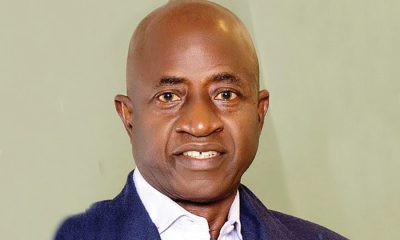
 Sports3 days ago
Sports3 days agoOdegbami speaks on Osimhen breaking his 44-year goals record
-

 Entertainment3 days ago
Entertainment3 days agoI didn’t snatch Asake’s mother from her husband -Musibau Alani
-

 Entertainment1 day ago
Entertainment1 day agoSome ladies in movie industry ready to sleep their way to fame — Jide Kosoko
-

 metro15 hours ago
metro15 hours agoCourt refers Ojukwu property case to alternative dispute resolution
-

 metro3 days ago
metro3 days agoOluwo accuses Ooni of plotting to dethrone him
-
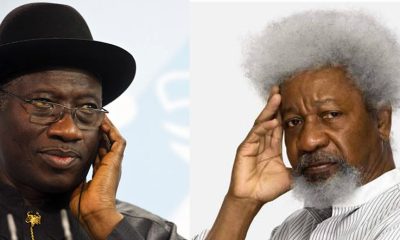
 metro1 day ago
metro1 day agoPresidency blasts Jonathan, Soyinka over comments on emergency rule in Rivers
-

 metro3 days ago
metro3 days agoBoko Haram attacks military base in Adamawa







